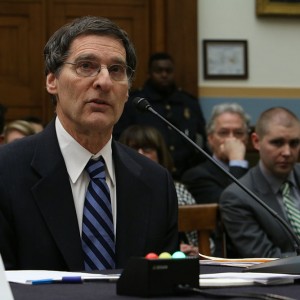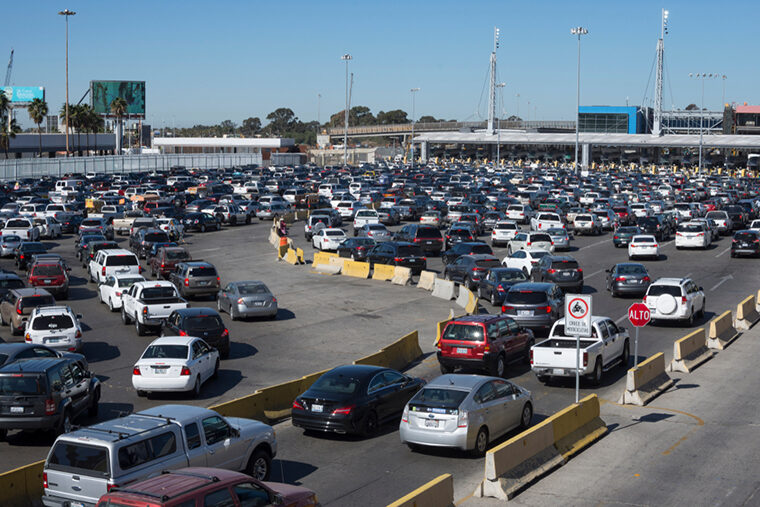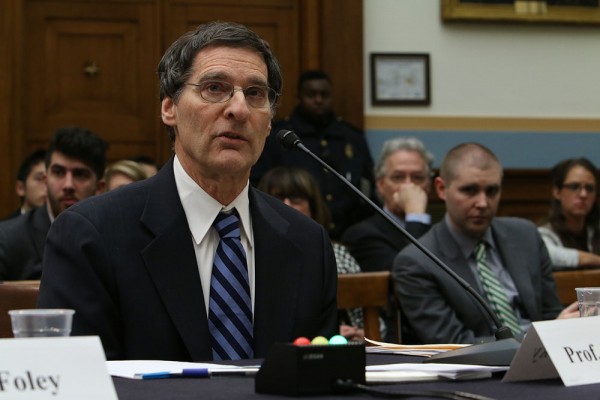Amid a partial government shutdown over funding for his promised wall along the southern U.S. border, President Donald Trump threatened Dec. 28 to seal the Mexico border if Congress doesn’t authorize funds — a pledge that may well entail deploying the military to prevent unauthorized entries or closing official ports of entry.
The legality, let alone the wisdom, of such measures was called into question by an immigration-law expert at Washington University in St. Louis.

“The president certainly has the general legal authority to close particular ports of entry,” said Stephen Legomsky, the John S. Lehmann University Professor Emeritus in the School of Law, author of the widely used law school text “Immigration and Refugee Law and Policy,” and former Chief Counsel of U.S. Citizenship and Immigration Services in the Department of Homeland Security. “Those ports are designated only by regulation, not by statute. Whether he would have to go through the lengthy notice-and-comment process (to close them) is unclear. He can issue interim regulations when it’s urgent, and the courts would have to decide whether they could reject his claims of urgency.”
But if he were to close all or almost all of the ports of entry along the southern border, Legomsky said “there would be a close legal question. Congress has created a complex, comprehensive system of criteria and processes for determining who is allowed to enter the country and who isn’t. If the president goes too far, the courts would have to decide whether he has effectively undermined that system.”
The other key complication, Legomsky noted, is that the president is likely to claim that this move is essential to national security.
Legomsky considers that claim “factually baseless,” but the Supreme Court might rule differently: “Five of our current Supreme Court Justices have tended to roll over and play dead the moment the president mutters the phrase ‘national security.’ So it’s hard to predict how the courts would react to a significant closure of official entry points along the southern border.”
As for deploying the military along the border, Legomsky said “the Posse Comitatus Act of 1878 prohibits active duty military personnel from performing domestic law enforcement functions. There are a few exceptions, though, and one of them is that they may assist federal and state law enforcement agencies in anti-drug operations.
“If President Trump claims that this is really about stopping the flow of illegal drugs into the country (the vast majority of which actually come by sea, not across the southern border), then the courts would have to decide whether they can consider evidence that keeping out asylum seekers — not controlling drugs — was his true motive. This is tricky. In the Trump v. Hawaii travel ban case, the Supreme Court refused to look beyond the four corners of an executive order to assess evidence of an ulterior motive.”
The bottom line, Legomsky said, is that “the legal questions are murky and it’s not clear how the courts would come out.”
Closing ports of entry would be “a disaster for so many reasons,” Legomsky said. Among them:
- “Desperate asylum seekers fleeing for their lives will simply do what they have to in order to survive. Many, if not most, will be forced to attempt entry at unauthorized points, where they will face additional dangers from drug cartels, gangs and common criminals who prey on them in those border areas.
- “It could devastate the U.S. economy. We depend heavily on trade in both directions across the southern border. Almost half of our fruits and vegetables come from Mexico.
- “It would split up families. Many U.S. citizens who live in the border area regularly visit their family members on the Mexican side of the border.
- “Deploying the military would divert them from more important missions.
- “There is no border crisis. There have always been dramatic ebbs and flows in the numbers of asylum seekers at the southern border, and the government always had the resources to handle those claims in the orderly way that the law provides — by assessing the merits of each individual case. The present administration has simply chosen not to utilize those resources, opting instead to withhold them and then cry ‘crisis’ when the numbers inevitably pile up at the border.”
Legomsky is available for comment at Legomsky@wustl.edu or by phone at 314-935-6469.


Comments and respectful dialogue are encouraged, but content will be moderated. Please, no personal attacks, obscenity or profanity, selling of commercial products, or endorsements of political candidates or positions. We reserve the right to remove any inappropriate comments. We also cannot address individual medical concerns or provide medical advice in this forum.